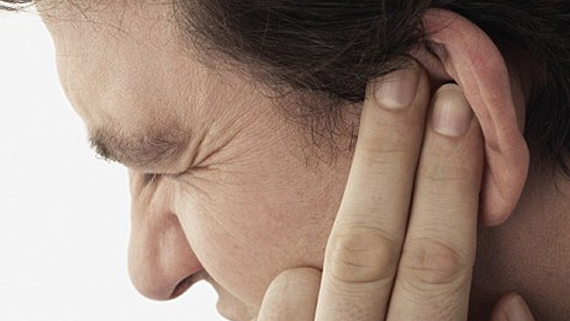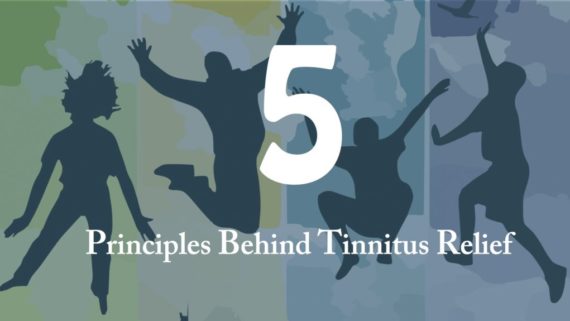Start by asking this question:
“Why has my hearing become so sensitive?”
Ask the right questions about why you are suffering from tinnitus
A staggering 50 million people are afflicted with tinnitus in the US
alone, yet only a small percentage of these actually “suffer” from tinnitus, why is this? What separates those who suffer from tinnitus from those who are oblivious? This is an important question for the tinnitus sufferer to explore if you want to find solace from the torment.
But before you say, “Well my tinnitus must be louder” think again. As research now tells us, that the difference between sufferers and none sufferers has nothing to do with volume, tone, pitch or type of tinnitus, but everything to do with the individuals nervous system.
So if you want to find true tinnitus help? Read on…
(Tinnitus help doesn’t have to be complicated)
The truth of the matter is that our ears work all the time and only relax once they have latched onto harmless background noise. It’s part of our evolution. We feel safe when our senses are familiar and relate with an environment. So, it stands to reason if one is in a completely silent environment, their hearing intensifies until it becomes hypersensitive and starts detecting subtle internal nervous information. This is what is called “hypersensitivity.” Our vision works in a similar way, in a dark room our pupils dilate, desperately trying to maximize what light there is in order to pick something up to give us a sense of bearing. These are all normal, they’re survival mechanisms, keeping us alert and aware. However some just happen to be more acutely aware, wired and hypersensitive than others and it’s this reaction, which is at root of your tinnitus misery and subsequently tinnitus help.
WHY HAS MY HEARING BECOME SO SENSITIVE? Stress builds incrementally and subtly
Right this second, you might not feel anxious, but your central nervous system is idling in a constant state of red-alert. Under the surface, your whole system has locked itself into a state of emergency, as if it senses that there is a threat that is ever-present. This is a very subtle and silent process and it’s called stress!
It’s this stress, which releases hormones, most notably adrenaline and it’s these chemicals, which perpetually keep your entire nervous system locked into this stress state.
Logically you know there’s no immediate danger but your body doesn’t work on logic, it works on instinct and input and therefore perceives certain behaviors, traits and activities as stressful.
So why does your body get into this state in the first place?
If you can recognize and understand the patterns, habits and behaviors in yourself, you can prevent them.
The key to understanding Tinnitus and the key to tinnitus help, for a vast majority of people is learning to understand your body’s relationship with stress. When you have high levels of stress hormones surging through your system, your body senses an emergency. Although you might not be cognitively aware of this, when your senses become heightened, your sense of hearing becomes acute (hypersensitivity) Sound familiar? With this heightened sense comes, agitation, irritation and the sufferer begins to focus on nothing but the tinnitus.
Now, I’m not suggesting this is what caused your tinnitus in the first place, no, that could be caused by a myriad of things. What I am suggesting is that this is what makes the difference between the vast majority who naturally habituate or ignore their tinnitus and those who cannot.
With this constant increase of stress hormone surging about your system, you become much more reactive to the world around you.
Now, please don’t think this is not abnormal or a serious problem, because it’s not. This is an ancestral survival mechanism that has evolved into your nervous system, for protection. So when danger appears, you don’t have to think about protecting yourself, it is an automatic response.
Stress and tinnitus go hand in hand
Need tinnitus help? Understand ADRENALINE
If tinnitus is bound up with an oversensitive nervous response, is this the reason why most people start complaining about ringing in the ears after periods of high levels of stress. As you probably already know stress causes a myriad of physical conditions but did you know that too much stress, releasing cortisol and adrenaline, over a long period of time can give you tinnitus?
What about the hard of hearing? Does the same apply for them?
If one is hearing impaired, partially deaf or completely deaf, every time they strain to hear they are increasing their hypersensitivity. When the brain does not get enough information from the external world, it tries to increase its receptivity by raising the inner volume. This is why the vast majority of people with hearing loss quite often experience ringing in the ears, namely tinnitus.
Now, for those who are hard of hearing or hearing impaired, stop straining to hear! You are only making yourself more prone to Tinnitus.
Let me draw up an analogy, think of an old tape-recorder, when you record something with the volumes too high, not only do you record the intended noise, you also record the buzzing, humming, clicking coming from the machine itself.
Tinnitus is just the same—you are hearing the noises of the nervous system, on top of sounds coming in from the world around you.
Tinnitus help starts with understanding and getting to grips with your stress hormones.
Stress and stress hormones are a natural part of physiology and life, however, with todays modern day existence there is a growing need to be actively aware and in control of our levels of stress both mental, physical and environmental. Never before has mankind been under such environmental, physical and mental stress, our daily lives and environment have changed drastically in the last 100 years but our bodies haven’t changed in 250,000 years. This is more a problem of adaption than anything else.
We do need stress and it’s reactive hormonal response in our lives, these are responsible for heighten awareness in times of need and often save our lives. Think about suddenly having to break in your car the butterflies rise in your stomach and there’s no need to think about a reaction. It all happens automatically and that’s just one example of an appropriate hormonal response.
Understanding what in your everyday life is spiking your hormones and prompting a physical stress reaction is one step in the right direction. Eradicating or controlling these responses and behavior is the next step towards tinnitus eradication.
It’s a proven fact that acute stress or shock, which produces large amounts of adrenaline, can literally divert blood flow from the cochlea and make you temporarily deaf!
Stress comes in many forms
Many people just associate stress with difficult or challenging situations. However this is only one form of stress and usually one of the most harmless forms (This situational stress can be directed and used appropriately)
Cortisol levels are also be raised via diet, toxins, concerns or obsessive worries and thought patterns, environmental, too much or too little exercise, stimulants, psychological repression, resentment (the list goes on an on)
In closing, stress hormones cause you to become hyper aware of nervous impulses that you would normally not respond or react to.
If you were to balance out your adrenaline and cortisol levels, your sensory perception would become less acute, and your Tinnitus would ease.
There is hope when it comes to tinnitus
Ringing in the ears can be a classic symptom that your nervous system is taxed to the max. When it comes to your tinnitus, remember, the alarm bells are ringing, and for a good reason. Find the reason and the alarm bell will soon stop ringing.
Tinnitus help won’t come in the form of an external pill; herb, vitamin, supplement or device and it won’t let go until you address the stressors in your life. Once you take control, educate and empower yourself you’ll say goodbye to that ringing in your ears once and for all!










Comments
Comments are closed.